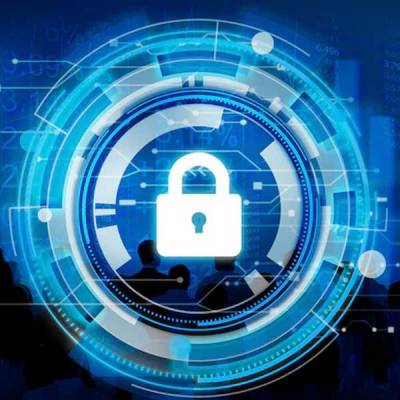Secure 2023 with these seven key security trends
01 Jan 2023

The physical security industry has been changing quickly in recent years. Developments and applications of cutting-edge technologies in this ever-evolving industry such as AI, machine perception, and IoT, are breaking boundaries all the time. We have seen security systems become deeply integrated and more comprehensive, expanding with capabilities that are now shouldering more intelligent tasks to improve efficiency in security as well as other operational functions. And all this is happening across many different industries and types of organisations. As we step into 2023, The seven key trends coming to the fore in the security industry.
AI applications are diversified, requiring more open ecosystems
We have seen more diversified AI products and applications that help solve intricate problems daily and meet customers' fragmented needs. AI’s acoustic and textual capabilities are also being explored by the industry, beginning with visual AI. For example, AI-powered audio anomaly detection is being used to detect equipment failures in industrial environments for heightened levels of worker safety. Furthermore, AI technology itself is evolving to the stage of self-learning with training and optimising itself much faster than supervised learning.
All of these require more ecosystems with open technologies, open resources, and even open protocols, for collaborations in the industry. Open technologies, such as container technology and virtualization technology, have significant potential for our industry, which are making hardware products more open.
AIoT continues to bridge physical and digital worlds
Taking artificial intelligence further, we believe the combination of AI and IoT (AIoT) will continue to be a major trend for 2023, reshaping the scope of the security industry. More AIoT solutions have been introduced that will not only provide intelligent protections but also help advance the efficiency of operations in a multitude of industries and organisations.
AIoT will create an important path for boosting digital transformation across several industries. This can be done by creating a digital twin, bridging the physical and digital worlds. For example, in industrial park management, virtual sites can be created by applying 3D modelling, using VR and AR technologies to represent and reflect the real ones, empowering them with the dynamic insight to act quickly to make the whole site run smoothly.
Visual experiences improve with 24/7 imaging technologies
Capturing security imaging with sharp clarity and color around the clock is a core demand for users of video security, but dim light at night has always been the biggest challenge to achieving this. Now, with the development of several new imaging technologies, we are seeing these challenges removed. Bi-spectrum image fusion technology that employs two sensors is being used to combine IR and visible-light imaging to reproduce vivid colors in dim lighting conditions. Artificial Intelligence-based image signal processing (AI-ISP) technology leverages deep-learning algorithms to radically improve visual noise reduction for nighttime image optimization.
Perception capabilities extend to a wider range
For security applications, perception capabilities are going far beyond visible light, extending out along the electromagnetic spectrum to expand capabilities of perceiving the physical world in new ways. For instance, hyperspectral imaging technology has been used in analysing optical irradiance characteristics and eutrophication to record water quality trends in rivers and lakes. In the millimetre-wave band, radar products are assisting the measurement of vehicle speeds and distances. The X-ray band has been applied widely in security inspections, now extending its applications in industrial equipment flaw detection.
And these multi-dimensional perception capabilities also converge to create innovative solutions that can accomplish a multitude of new operations, such as radar assisted video systems for perimeter protection, integration solutions of video and sonar arrays for traffic management, and alarm systems with a wide range of detectors for smart home applications.
More focus on usability of devices and systems
Usability of devices and systems impacts the daily life of security professionals, which has generated more focus now in light of workforce shortages and labor cost increases across our industry. This trend is requiring manufacturers to optimise their products with an easier configuration process, make better use of interactive experiences that will reduce installation time, and lower the costs of equipment maintenance and skill building. For example, we see more installers preferring to use mobile applications over PCs in device installation and maintenance where that interactive and simplified process comes across best.
The industry moves to greener, lower-carbon operations for sustainability
Trends in green manufacturing and low-carbon initiatives in the security industry are very inspiring. Security manufacturers are rolling out products featuring longer life expectancies, recyclable materials and packaging, and renewable energy usage. Each of these initiatives reduces waste and emissions. For example, the solar-powered camera demand continues to increase due to its well-established effectiveness at using the sun's limitless clean energy. And in daily manufacturing and operations, more companies in the industry have set medium-to-long-term goals for environmental management, spanning from lower carbon production, efficient energy use, and waste and chemical management, to greener office environments.
Zero Trust continues to become the go-to cybersecurity strategy
Cybersecurity remains a very important and challenging issue for all parties in our industry, as customers and regulators get more concerned about the security of their data and privacy, and have set higher standards and demands on this issue. We see the value in highlighting the idea of Zero Trust for everyone to consider when making cybersecurity strategies.
Zero Trust is a strategic initiative that was developed to prevent data breaches by eliminating the concept of trust from an organisation’s network architecture. In cybersecurity, trust becomes a vulnerability. Zero Trust is an approach to cybersecurity that dictates our connected systems must “never trust; always verify.”
Source : Hikvision
Related Stories

